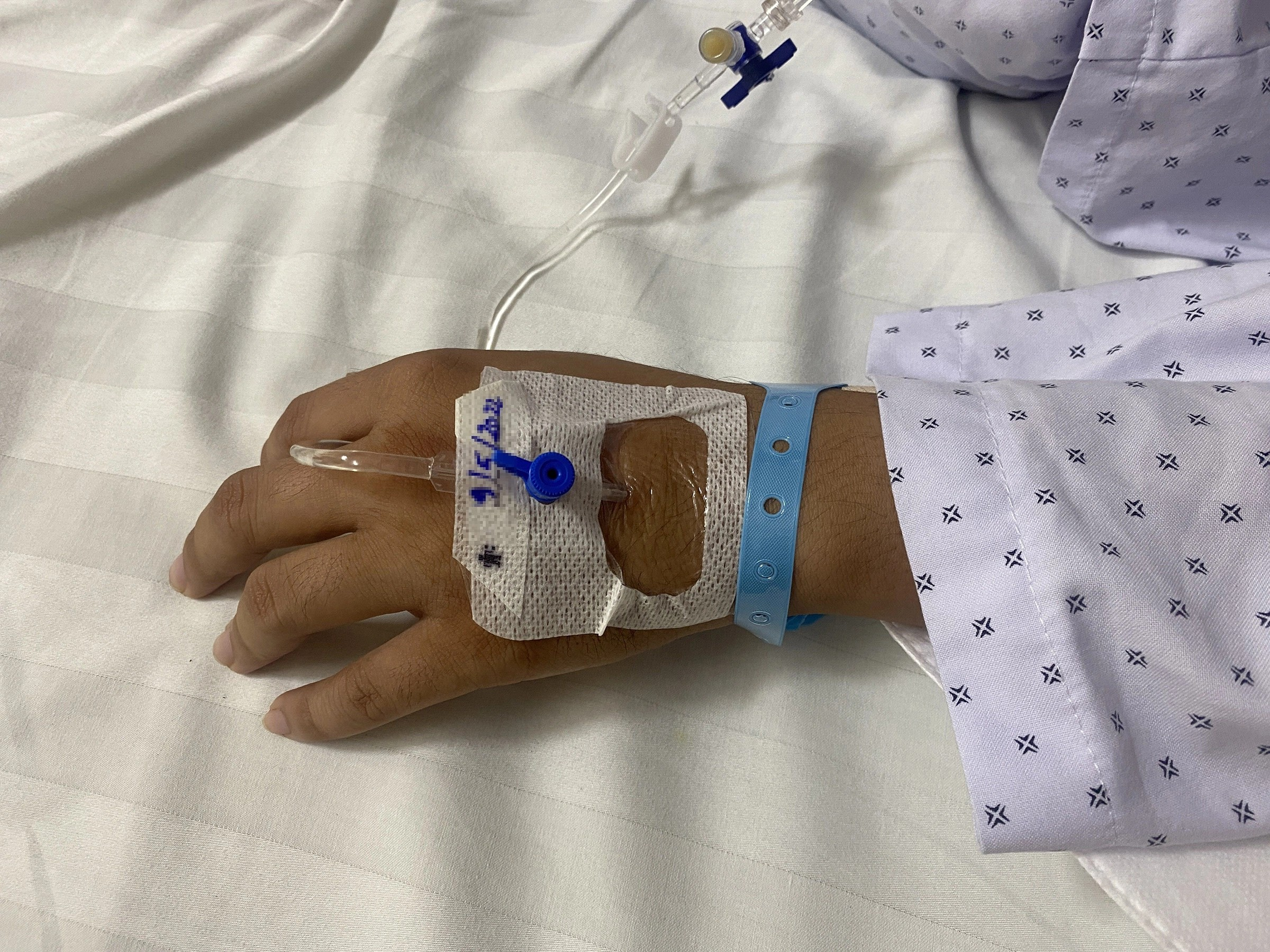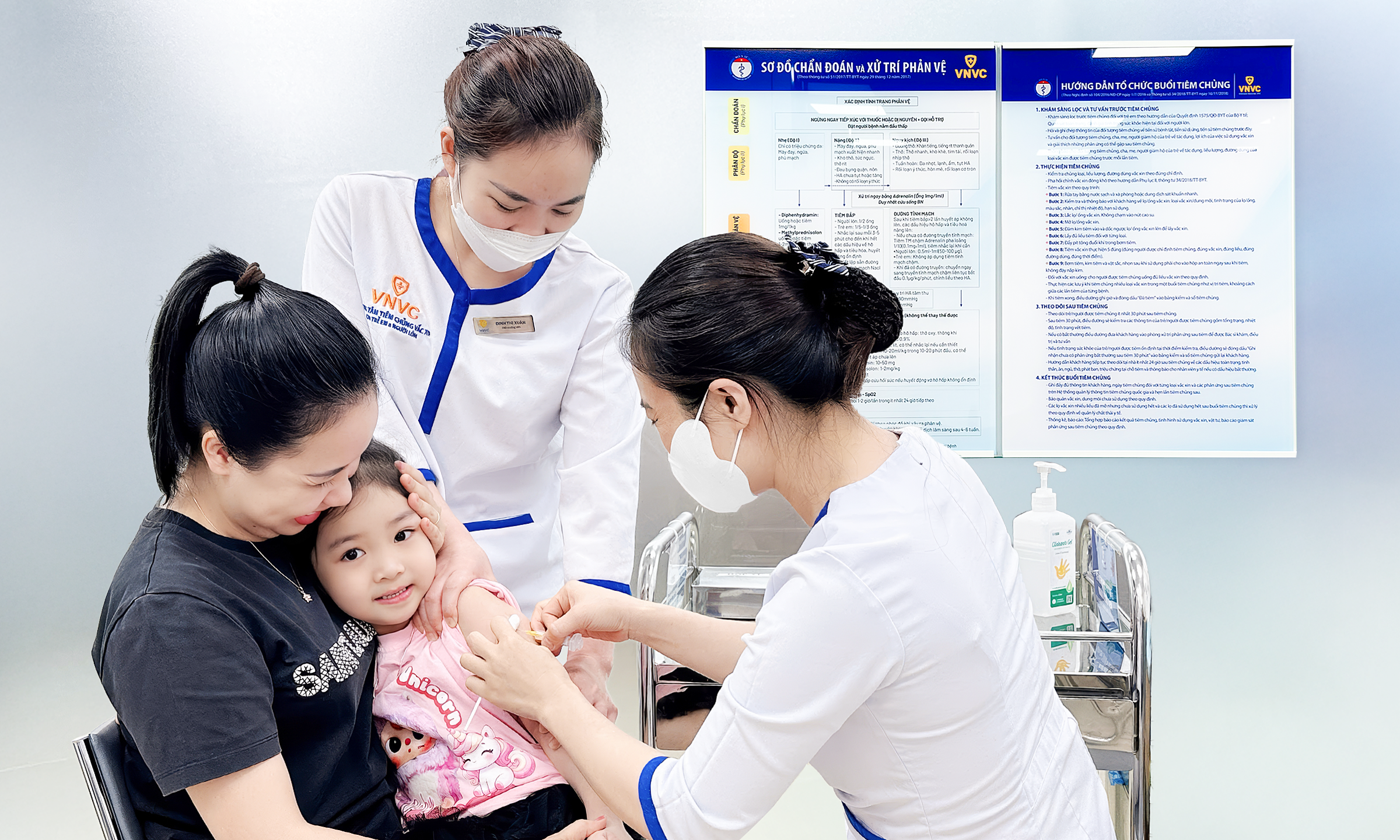Dr. Le Thi My Chau, a physician in the Department of Internal Medicine - Infectious Diseases, Tam Anh General Hospital, TP HCM, stated the above amidst warnings from the TP HCM Center for Disease Control about the rise of dengue fever in many localities. Weekly infections are increasing and spreading rapidly, with severe cases reported in both children and adults.
According to Dr. Chau, dengue shock is a state of acute circulatory failure, occurring when a large amount of plasma leaks from blood vessels, leading to multiple organ failure and death if not treated promptly. Most severe dengue shock cases result from family members' complacency, believing the illness can be treated at home and only requires overcoming the fever stage. A common scenario is patients admitted on days 4-6 exhibiting dengue shock symptoms such as vomiting, severe abdominal pain, bleeding gums, nosebleeds, vaginal bleeding, etc.
 |
A patient receives intravenous fluids while being monitored for dengue fever complications at Tam Anh General Hospital, TP HCM. Photo: Tram Nguyen |
A patient receives intravenous fluids while being monitored for dengue fever complications at Tam Anh General Hospital, TP HCM. Photo: Tram Nguyen
The hospital has also observed cases where patients received improper medication, masking the symptoms and making it difficult to detect worsening conditions. For example, patients were given painkillers for headaches, muscle and bone aches, or eye socket pain, or continuously given fever reducers without proper indication, disrupting the manifestation of the disease.
Furthermore, families often fail to recognize warning signs of disease progression. Symptoms like high fever, fatigue, and rash are easily confused with other illnesses such as viral fever, roseola, chickenpox, hand, foot, and mouth disease, and measles, hindering timely monitoring and treatment.
The World Health Organization (WHO) classifies dengue shock as "severe dengue" and the most serious complication of the disease. Without treatment, the mortality rate can reach 20%.
Doctors advise against self-treating dengue fever or using medications without proper instruction. If a patient has a fever for more than two days, they should seek medical attention. For outpatient treatment, monitoring for unusual signs is crucial, especially from day three to day seven. Warning signs of disease progression include: vomiting, persistent and severe abdominal pain; mucosal bleeding such as vomiting blood, black stools, blood in urine, nosebleeds, bleeding gums, cold hands and feet, restlessness, fatigue, lethargy, etc.
 |
Children are at high risk of developing severe dengue fever, receiving vaccinations at VNVC Immunization System. Photo: Moc Mien |
Children are at high risk of developing severe dengue fever, receiving vaccinations at VNVC Immunization System. Photo: Moc Mien
Dr. Bach Thi Chinh, Medical Director of VNVC Immunization System, states that there is no specific treatment for dengue fever. Current treatment methods focus on supportive care and managing symptoms.
The disease is transmitted through mosquito bites, typically peaking between May and November. Therefore, the dengue fever control strategy focuses on prevention and outbreak containment.
Currently, the dengue fever epidemic cycle has decreased from five years to 3-4 years. Vietnam's hot and rainy season, coupled with storms and floods, creates favorable conditions for the disease-carrying mosquitoes to breed. Dr. Chinh advises people to control and eliminate these mosquitoes, dedicating at least 10 minutes each week to check and remove mosquito breeding sites in household water containers. Water containers should be cleaned and covered to prevent mosquitoes from laying eggs. People should sleep under mosquito nets, even during the day, wear long-sleeved clothing, and use mosquito repellent, lamps, or electric rackets.
The disease can be prevented with the Qdenga vaccine produced by Takeda Pharmaceuticals (Japan), indicated for children 4 years and older and adults. The vaccine reduces the risk of contracting the disease by over 80% and the risk of hospitalization by over 90%.
The vaccination schedule consists of two doses, three months apart. Women should receive this vaccine three months or at least one month before pregnancy.
Dr. Chinh recommends early vaccination as the vaccine takes an average of two weeks to produce protective antibodies. Two doses are necessary for maximum protection. This helps reduce dengue fever incidence, complications, and treatment costs.
Phan Binh












